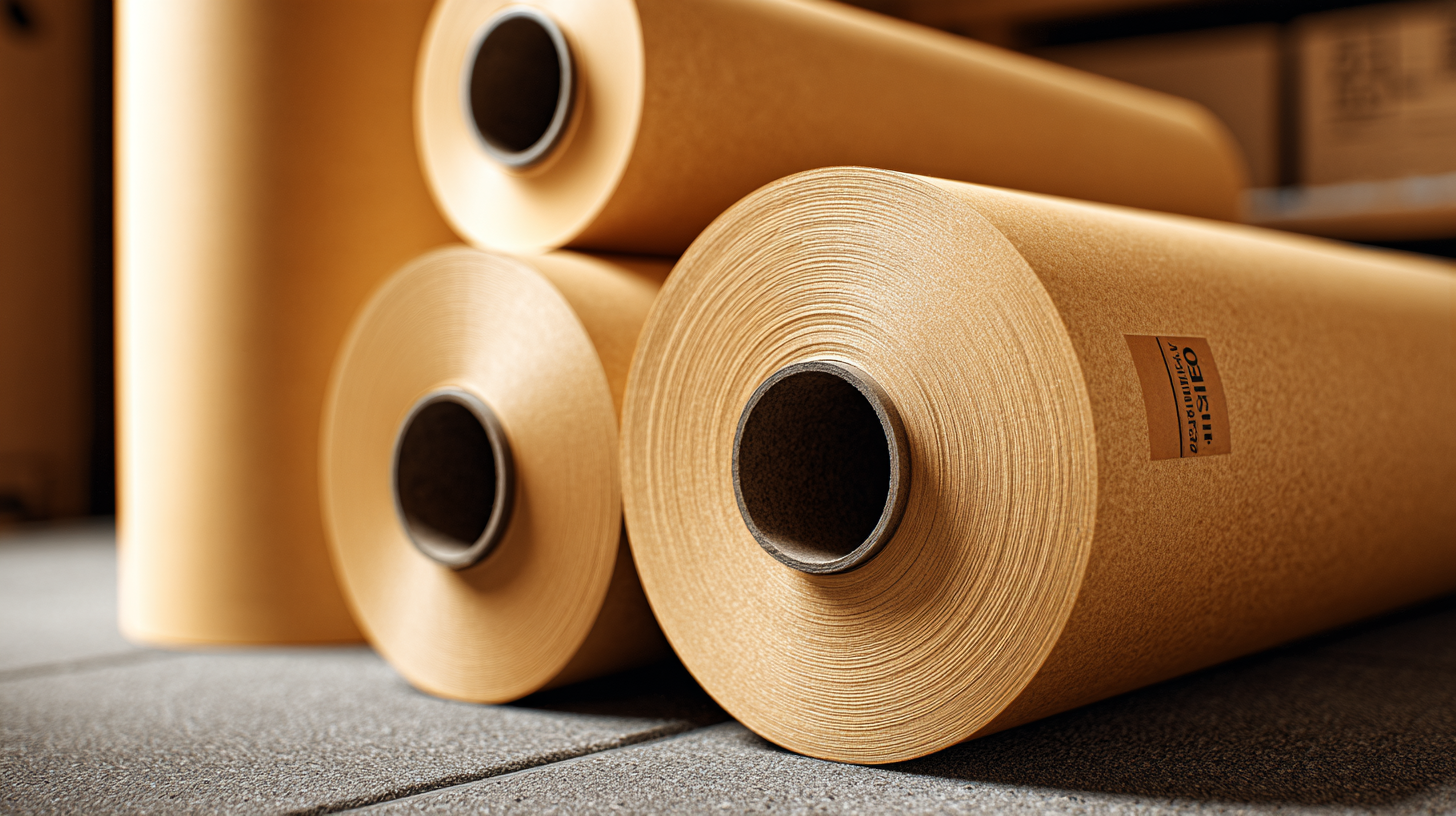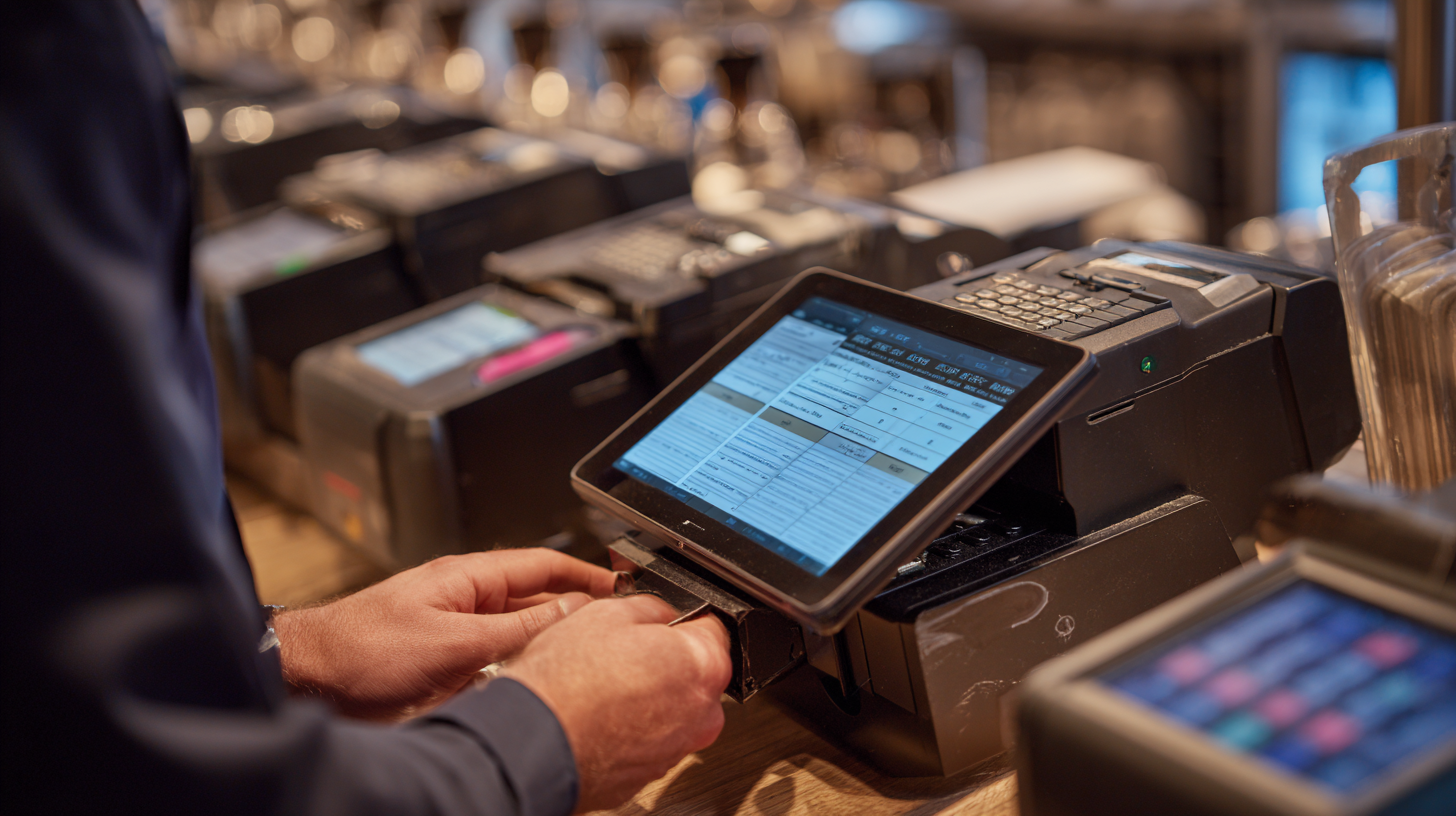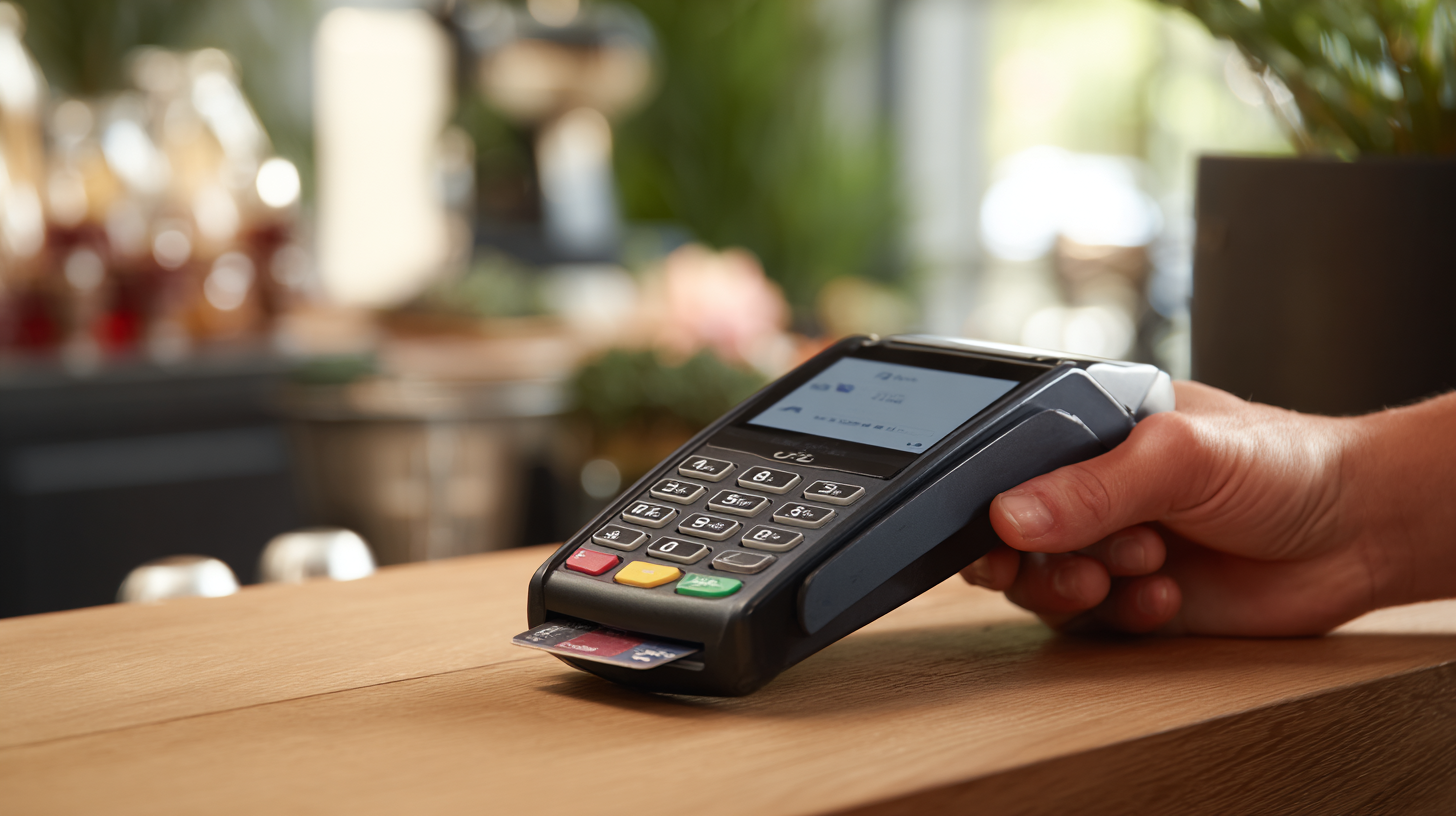In an increasingly interconnected global market, understanding the technical specifications of essential products like POS rolls is crucial for both manufacturers and buyers. POS rolls, the indispensable paper used in point-of-sale systems worldwide, come in various types and sizes, each tailored to specific business needs. As international trade expands, so does the need for proper industry certifications that ensure quality and compliance with regional standards. This blog will delve into the intricate details of POS rolls, examining the key specifications that buyers must consider when sourcing these products from international suppliers. By unlocking the technical aspects and highlighting the importance of industry certifications, we aim to equip global buyers with the knowledge to make informed purchasing decisions, thereby enhancing operational efficiency and customer satisfaction across diverse markets.

 When selecting the best POS rolls for global buyers, understanding key technical specifications is crucial. Quality metrics such as paper thickness, sensitivity, and roll dimensions can significantly influence printing performance and longevity. A roll made from high-quality, thermal-sensitive paper ensures clear and lasting receipts, which is essential for both customer satisfaction and operational efficiency. Additionally, the size of the roll should match the POS printer's specifications to prevent jams or inconsistent printing.
When selecting the best POS rolls for global buyers, understanding key technical specifications is crucial. Quality metrics such as paper thickness, sensitivity, and roll dimensions can significantly influence printing performance and longevity. A roll made from high-quality, thermal-sensitive paper ensures clear and lasting receipts, which is essential for both customer satisfaction and operational efficiency. Additionally, the size of the roll should match the POS printer's specifications to prevent jams or inconsistent printing.
Moreover, the impact of data quality in various sectors, especially in health and social care, underlines the importance of reliable materials in the supply chain. Just as high-quality data drives meaningful insights and decisions, choosing superior POS rolls can enhance the overall service experience. For global buyers, it's vital to scrutinize the manufacturing standards and certification of POS rolls, as these indicators often correlate with performance reliability. Investing in quality translates to better business outcomes, leveraging both data and materials to elevate operational practices.
As the global market navigates through turbulent waters influenced by shifting trade policies and tariffs, particularly those imposed by the U.S. on key trading partners like China, the landscape for POS roll production undergoes significant transformation. China continues to assert its dominance in this sector, leveraging its extensive manufacturing capabilities to meet the rising demand from international buyers. The trend highlights not just China's export leadership but also reflects the complexities of global supply chains, where efficiency and cost-effectiveness remain paramount.
Amid these geopolitical tensions, the POS roll market is responding to demands for enhanced specifications and sustainable production practices. Buyers globally are increasingly seeking products that not only meet their operational needs but also adhere to environmental standards. As the global economy braces for potential ramifications of trade conflicts, including the impact of tariffs and protectionist policies, manufacturers are called to innovate, ensuring their products remain competitive while addressing the shifting expectations of consumers.
This evolving landscape underscores the necessity for agility and foresightedness in POS roll production to thrive in an interconnected and often unpredictable global marketplace.
When it comes to selecting the best POS rolls for global buyers, understanding the material composition is crucial. The most common paper types include thermal paper, bond paper, and synthetic materials, each offering unique benefits depending on the application. According to a report published by Smithers Pira, the thermal paper market is projected to reach 3.5 billion square meters by 2025, indicating a significant demand due to its efficiency and high-quality print capability, essential for retail environments.
Thermal paper, made with a heat-sensitive coating, provides sharp images and quick drying times, making it ideal for high-volume transactions. In contrast, bond paper, known for its durability and printability, is often used where long-lasting records are necessary, such as in financial and governmental applications. A recent industry analysis highlighted that the global bond paper market is expected to grow at a CAGR of 3% over the next few years, driven by the rising need for reliable documentation in various sectors. For specialized needs, synthetic materials like polyester or polypropylene offer excellent water and tear resistance, making them suitable for outdoor or challenging environments. Understanding these material compositions can help global buyers make informed decisions that align with their specific operational requirements.
When it comes to purchasing POS rolls, global buyers face a complex decision-making process that hinges not only on technical specifications but also on cost-effectiveness. The competitive landscape of suppliers reveals a notable difference between Chinese manufacturers and their global counterparts. Chinese suppliers often provide a variety of options at lower price points, thanks primarily to reduced labor costs and economies of scale. This cost advantage can significantly influence procurement strategies for businesses aiming to minimize expenses while securing quality products.

However, the cost-effectiveness of choosing Chinese POS rolls over global suppliers is not solely based on the price tag. Factors such as reliability, material quality, and customer service play crucial roles in the overall value proposition. Global suppliers may offer enhanced quality control and faster shipping times, which can result in better performance and less downtime for businesses. A thorough comparative analysis is essential for buyers to assess their priorities—whether they lean towards immediate savings or long-term reliability—ultimately making an informed decision that aligns with their operational needs.
In the quest for sustainable practices in the manufacturing of POS rolls, environmental considerations take on paramount importance. As businesses increasingly embrace green initiatives, the focus on minimizing carbon footprints and environmental impacts becomes essential. The production process of POS rolls, often overlooked, can significantly contribute to waste generation and resource depletion. Innovative approaches in sourcing materials and adopting energy-efficient manufacturing processes can pave the way for sustainability within this sector.
A key aspect of promoting sustainable POS roll production includes evaluating the life cycle of materials used, from raw material acquisition to end-of-life disposal. By incorporating recycled and eco-friendly materials, manufacturers can reduce their environmental impact while appealing to conscious consumers. Additionally, aligning manufacturing practices with principles of a circular economy can lead to reduced waste and enhanced recyclability of POS rolls. As technology advances, integrating smart manufacturing solutions can further optimize production efficiency and sustainability, setting a precedent for responsible industry practices in the future.
| Specification | Description | Sustainability Feature | Common Usage |
|---|---|---|---|
| Roll Width | 80mm | Made from recycled paper | Retail point-of-sale |
| Length | 50 meters | Biodegradable coating | Logistics and shipping |
| Core Diameter | 12mm | Sourced from sustainably managed forests | Hospitality and restaurants |
| Color | White | Eco-friendly inks | Retail and service |
| Weight | 150 grams | Minimal packaging waste | Point-of-sale systems |
